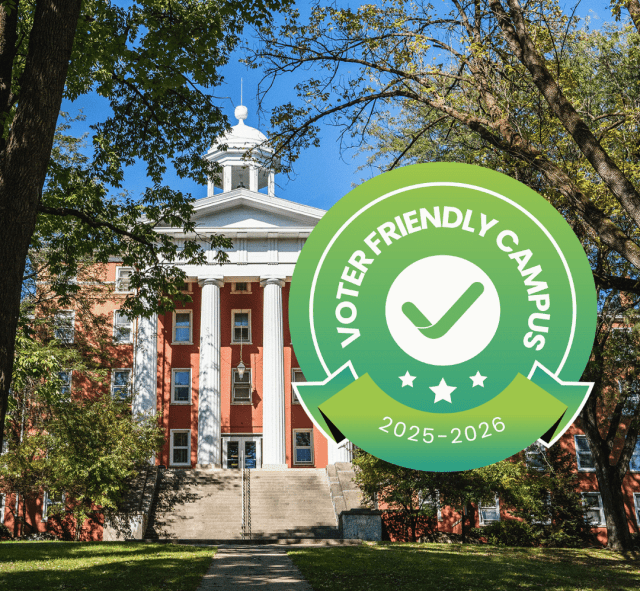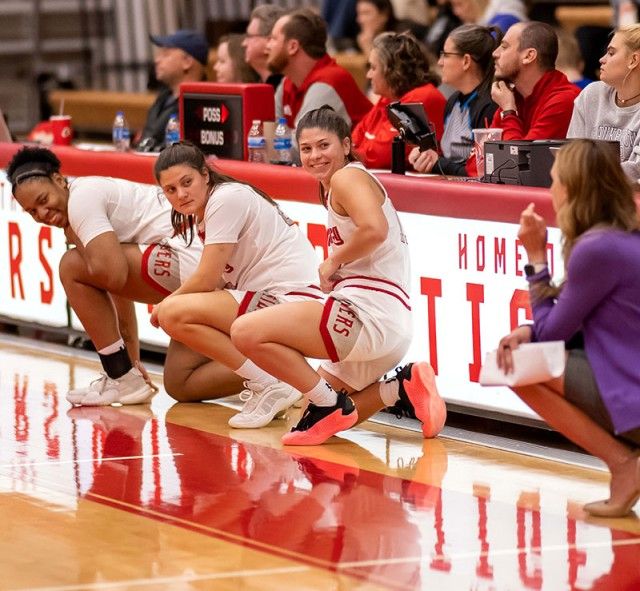From the mountains to the sea, nine Wittenberg University students and two faculty members will traverse the entire length of Poland in less than four weeks this summer as they explore social psychology and political ideology in Polish culture. The 24-day study-abroad program, which runs from May 18 through June 10, 2018, includes overnight stays in major cities and small villages from the Baltic Sea to the Slovakian border.
Led by Associate Professor of Political Science Heather Wright and Associate Professor of Psychology Michael Anes, students will spend two days on campus preparing for their trip with readings, reflections and viewings of several films about Poland. The group departs the United States on Thursday, May 17.
While traveling in Poland, students will take two three-credit courses and several language lessons. Anes will teach The Psychology of the Holocaust, which includes visits to important religious sites for the history of Jews, Catholics, Tatar Muslims and the Polish Orthodox in addition to Holocaust sites. Students will consider how personal and situational variables affected behavior in perpetrators, bystanders and heroic helpers, and how the boundaries between the roles were not always distinct. Wright’s course, Ideology and Identity in Polish Culture, will explore how the various political ideologies that Poles have lived under – from imperialism and totalitarianism to democracy – have shaped national identity.
According to Anes, Wittenberg’s approach to summer study in Poland is unique.
“We don’t think other summer Poland study trips cover both the Holocaust and contemporary political and social issues as fully and in such an integrated way,” he said.
Wright describes the study-abroad program as a “traveling seminar.” Unlike other programs, the group’s itinerary includes more than just a few stops in major cities. Students will visit Krakow, Zakopane, Lodz, Warsaw, Bialystok, Rajgrod, Gdansk and Wladyslawowo, as well as small villages in between.
Along the way, students will meet with Polish scholars and activists to understand how Poland’s wartime and communist past have shaped the complex contemporary political, social and cultural situation for Poland’s Catholic majority and minority groups such as Jews, Muslims and LGBTQIA people.
Anes and Wright, who worked and lived in Poland as U.S. Fulbright Scholars during the 2010-2011 academic year, have professional connections that will facilitate visits to Jagiellonian University, the University of Lodz, the Lodz Jewish Heritage Foundation, the University of Warsaw and the University of Gdansk.
“Polish colleagues have visited Wittenberg and given talks over the years, and we think this continuity is good for our students, for both their learning and networking,” Anes said.
This is the second time that Anes and Wright have offered the Poland program; in 2013, eight students participated in a similar itinerary and course schedule.
This year’s program participants include Rachel Oliver, class of 2019; Allison Ross, class of 2020; Spencer Laughman, class of 2019; Maddie Vanhook, class of 2020; Gabi Hancock, class of 2021; Hannah Petty, class of 2021; Lydia Newton, class of 2019; Lillian Frye, class of 2021; and Jayson Nowak, class of 2020.
To follow the group’s adventures, visit www.wittinpoland2018.org. For more information about international education and study abroad programs at Wittenberg, visit www.wittenberg.edu/administration/inted or contact Director of International Education JoAnn Bennett at jbennett@wittenberg.edu.







